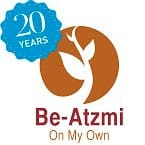Employment programs
Be-Atzmi develops and runs employment programs in about 150 different locations (in over 100 towns and cities countrywide). These programs are intended for people who are underemployed or chronically unemployed. Every year, some 17,000 men and women from disadvantaged population groups choose to take part in the wide variety of programs we offer. Participants in our employment programs, which usually last about a year, receive individual coaching and attend group workshops. When completed, this in-depth process leads to finding stable and fair employment that is consistent with the participants’ skills and aspirations.
Participants in our employment programs benefit from:
- Greater self-confidence and reassurance of their ability to make personal and professional choices
- An assessment of their aspirations and skills, while examining barriers that make it difficult for them to find jobs and remain employed
- A defined employment goal and personal career plan
- Job search tools (such as job interview preparation and resume writing)
- A budget for vocational training, basic skills courses (computer and language skills), and more – depending on the program and the participant
- Access to employers and job opportunities; referrals to coaches if they want to start a micro-business
- Support in the community, including job fairs, meetings with Be-Atzmi graduates, follow-up programs and more
- Family coaching throughout the process as well as ’employment education’ for their children
- Tools for managing their household budget
In addition to our programs that are deployed around the country, Be-Atzmi also operates Ta’asuKav, a national employment helpline for people who have lost their jobs, are unemployed or are looking for a job. The helpline – which can be contacted by dialing *2119 – offers them coaching, support and guidance over the phone.
Participants in all our programs, without exception, do not pay for the services they receive.
Employment Empowerment
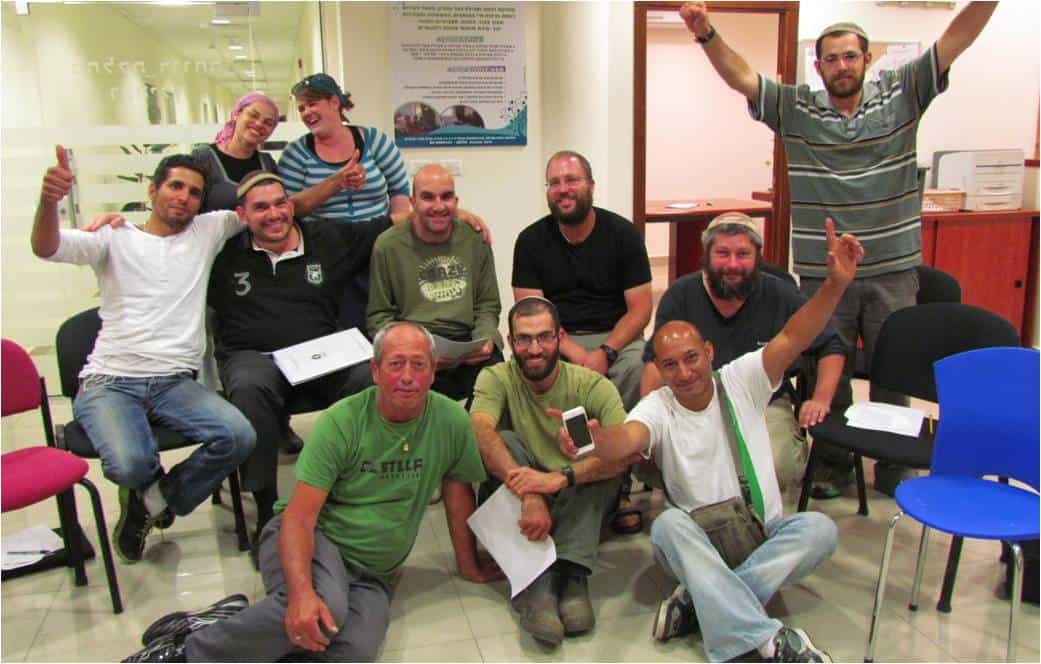
This program, intended for families known to social services, focuses on the connection between participants’ improved management of their household budget and the employment-related changes the parents are undergoing. The program also provides each family with a special stipend which they can utilize to make the parents’ integration into the job market smoother.
For social services departments and the Ministry of Labor, Social Affairs and Social Services, Employment Empowerment offers a groundbreaking approach to dealing with work-related hardships faced by these families. Among other things, this can be seen in the pivotal role of occupational social workers in the program. Employment Empowerment was conceived and is led by the Ministry of Labor, Social Affairs and Social Services. It was developed in collaboration with Be-Atzmi in partnership with the Ted Arison Family Foundation.
Program director: Gitit Sagiv
gitit.sag@be-atzmi.org.il
Eshet Chayil - Riyadiya
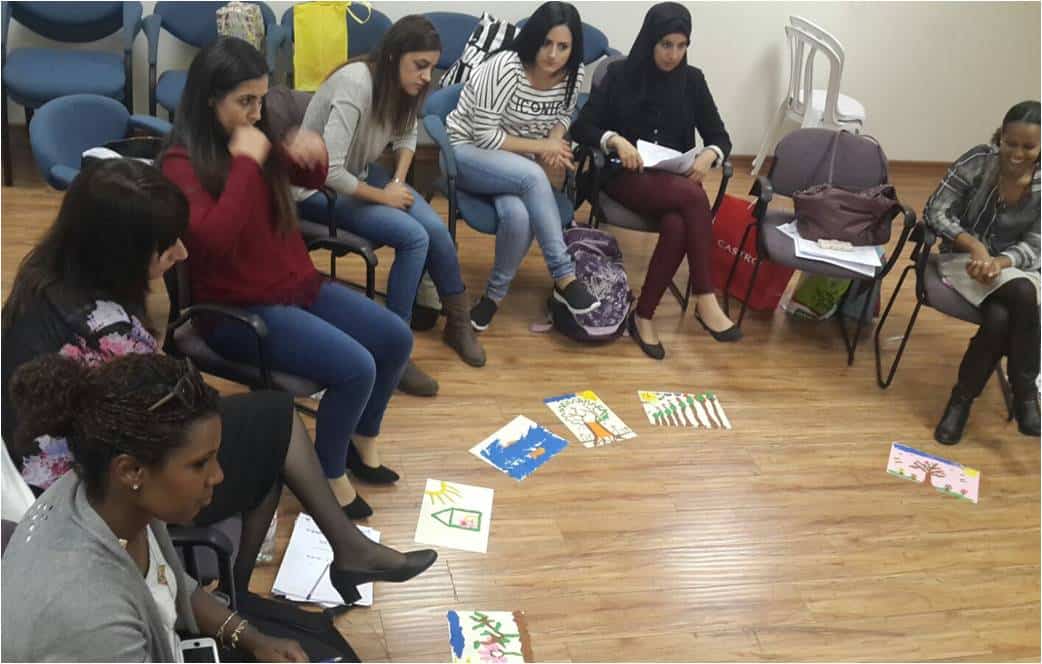
This program is intended for mothers from traditional societies or societies in a state of cultural transition (such as women from the Arab sector, immigrants from Ethiopia, France and the Caucasian countriesand more). The participants are either unemployed or underemployed and typically have little education. Eshet Chayil provides them with tools to improve their employability and helps them overcome the multiple barriers standing in their way. Some of those barriers include cultural differences, inadequate language and computer skills, and the challenge of balancing their parental responsibilities and a job.
The program, which is widely deployed through some 75 groups, offers the women coaching for a period of two years. Originally conceived by JDC-Israel-TEVET, Eshet Chayil is led by the Ministry of Labor, Social Affairs and Social Services together with the Authority for Economic Development of the Arab, Druze and Circassian Sector at the Prime Minister’s Office. Be-Atzmi is responsible for managing the professional aspects of the program in the field.
Program director: Ruty Levite
ruty.lev@be-atzmi.org.il
Mifne-Massar
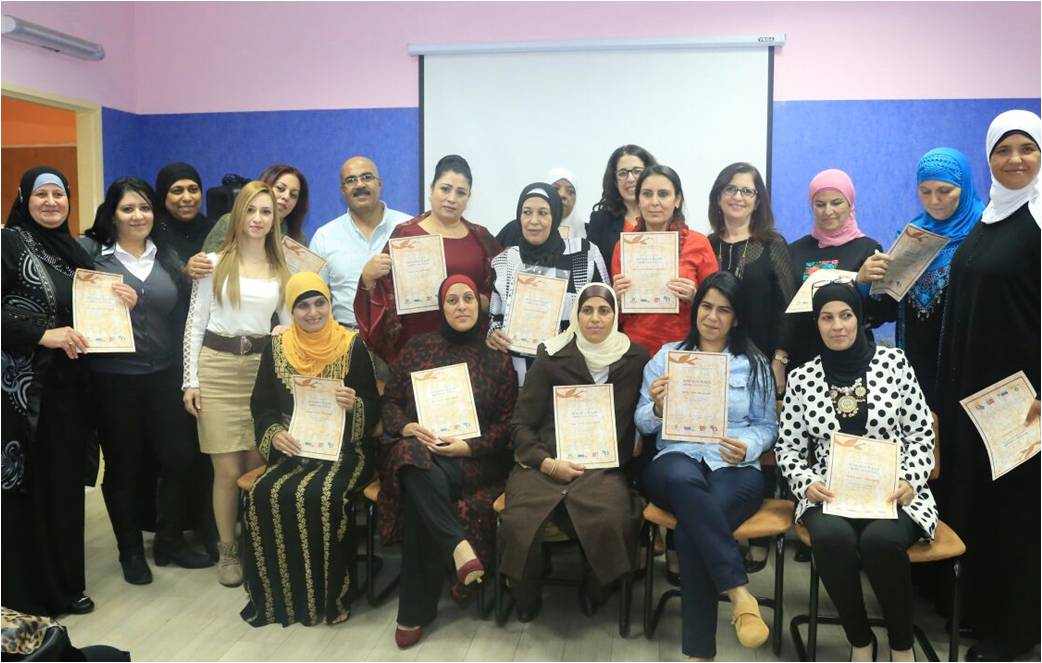
Mifne-Massar was developed independently by Be-Atzmi in 2006. Its methodology is based on a combination of group workshops and individual mentoring sessions for one year. This combination serves as a foundation for creating meaningful personal and occupational change. The program is intended for both women and men and caters to a wide variety of population groups: Arabs; secular, religious and ultra-Orthodox Jews; young and older adults. In light of its success and achievements, Mifne is used by Be-Atzmi as a platform for developing unique employment services that can be customized to diverse needs and target audiences.
The program is managed in partnership with the local authorities where it operates and with support from various business and philanthropic organizations.
Program director: Nurit Carmi
nurit@be-atzmi.org.il
Mifne – For Ultra-Orthodox Families
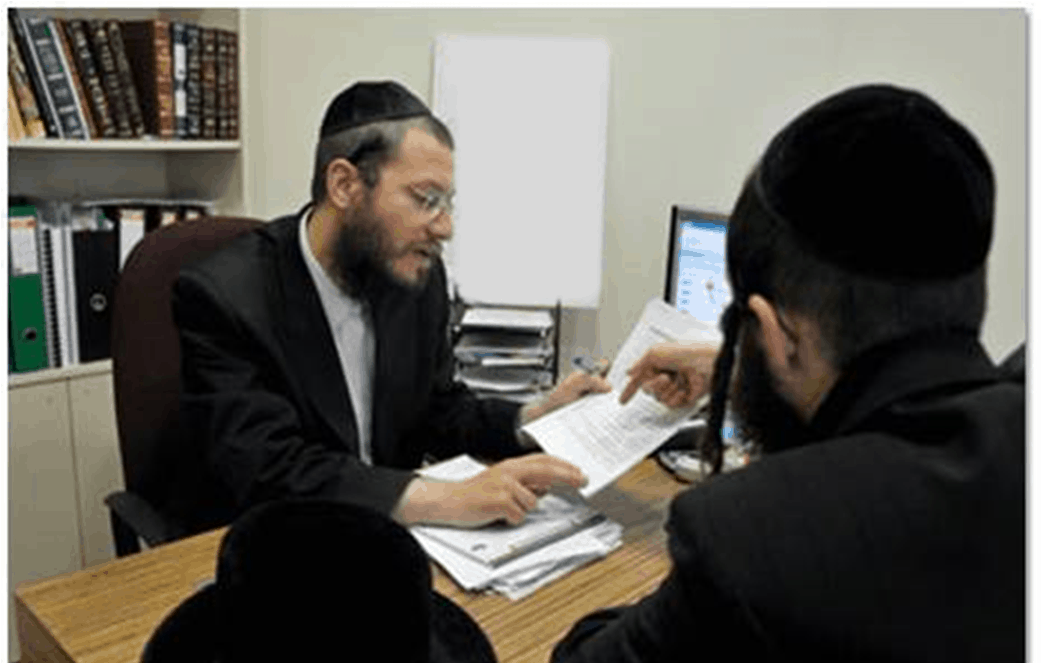
This is one of our self-developed programs established in 2015. Based on a holistic approach, it has dramatically helped less resilient ultra-Orthodox parents obtain stable and fair employment.
This unique program is geared towards families in which the parents are aged 25-45 and supported by social services and local philanthropic organizations. Mifne (which means turning point in Hebrew) helps the fathers find employment, while extending support to the mothers who typically already have a job and require backing to continue working.
The program emphasizes the connection between improved management of the household budget (in cooperation with the Paamonim Association) and the employment change that the family is undergoing. Mifne operates in partnership with different local authorities and is aided by various organizations from the corporate and philanthropic sectors.
Program Director: Naftali Flintenstein
naftali@be-atzmi.org.il
Shaham
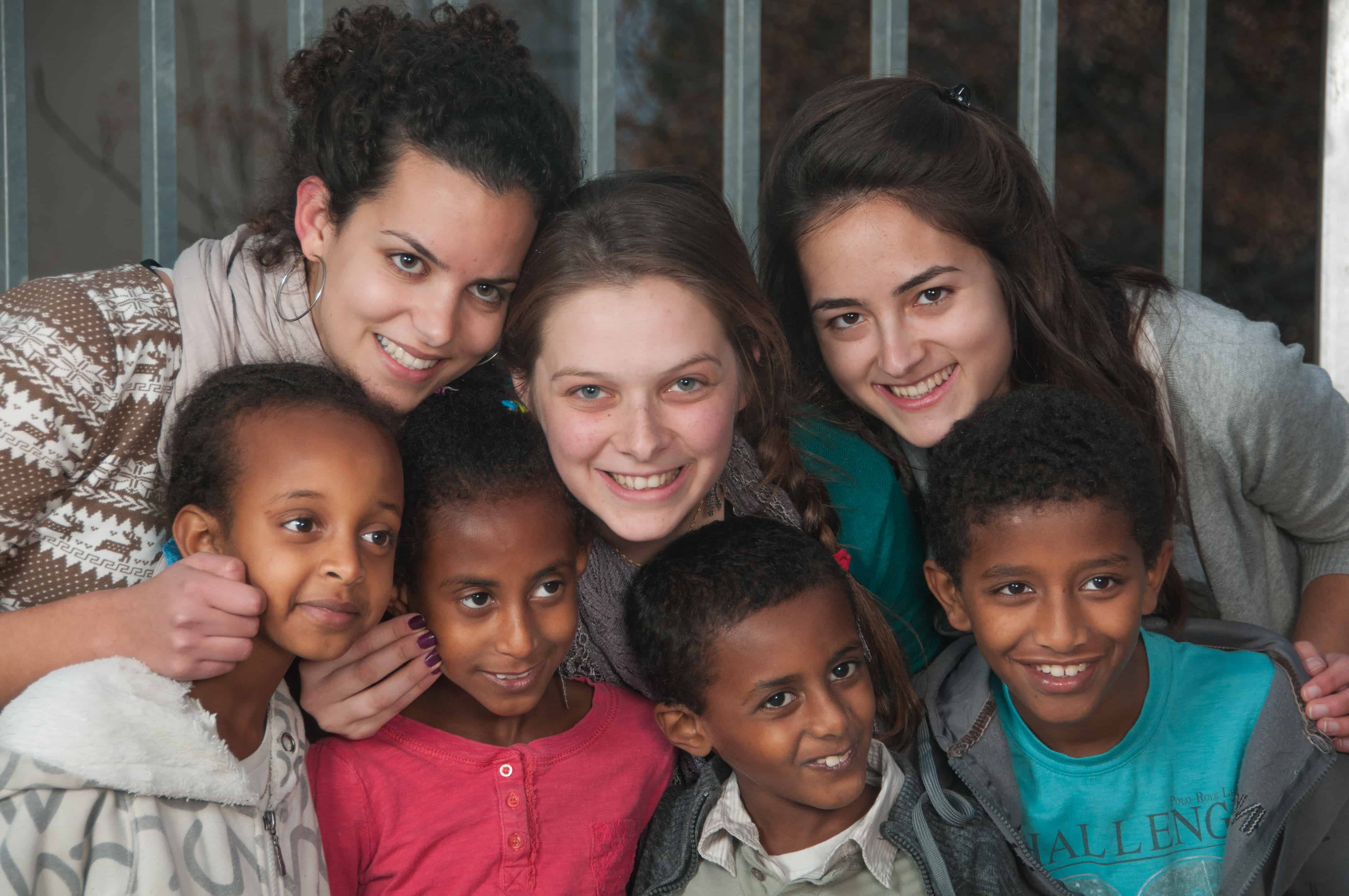
Shaham promotes employment education among children from immigrant families and families known to social services. The program seeks to improve the children’s performance at school, help them acquire life skills, boost their sense of self-confidence and self-efficacy, and enhance their understanding of the correlation between their current efforts and their options in the future. It also makes information about employment and higher education available to them and mediates between the schools they attend and social services.
As part of the program, young women who volunteer for National Service (and receive training on a regular basis) mentor the children at home and at school. Shaham operates under the social services departments in the towns where it is offered and most Shaham coordinators are social workers. The program is run in partnership with the Ministry of Education, the Bat-Ami Association, and a number of business and philanthropic organizations.
Program director: Eden Adgoicho
eden.tas@be-atzmi.org.il
Ma’avarim (Transitions)

The program is tailored to the rural community population that has endured major challenges, due in large to various community, social and economic developments that had taken place in rural localities. The program’s objective is to provide assistance to local community members at regional employment centers in which they offer personal and community support, including: Assistance in improving their earning potential and advancing their integration into the workforce; providing wider accessibility to information and employment opportunities; advancing regional economic employment and entrepreneurial developments; spearheading the local and regional joint partnership to help set a daily schedule for local community members.
The program runs in a joint cooperation with the Community Employment Service; Ministry of Social Affairs and Social Services; JDC-Israel-Tevet; regional and local municipalities; the Ministry of Economy and is operated by Be-Atzmi.
Program Director: Dror Netzer
dror.net@be-atzmi.org.il
Daf Chadash
The program works with women victims of domestic violence and their children who are transitioning out of shelters for battered women. Daf Chadash helps the women rebuild their lives and take their first steps in their new surroundings. They receive professional mentoring that includes vocational and financial rehabilitation, assistance in exercising their rights, help in creating infrastructure for leading a self-sufficient life, empowerment and personal development, parenting support and more. Each woman is also given an adjustment grant.
The program is an initiative of the Ministry of Labor, Social Affairs and Social Services and is run by Be-Atzmi.
Program director: Adva Kra Vazana: adva.kra@be-atzmi.org.il
Riyan
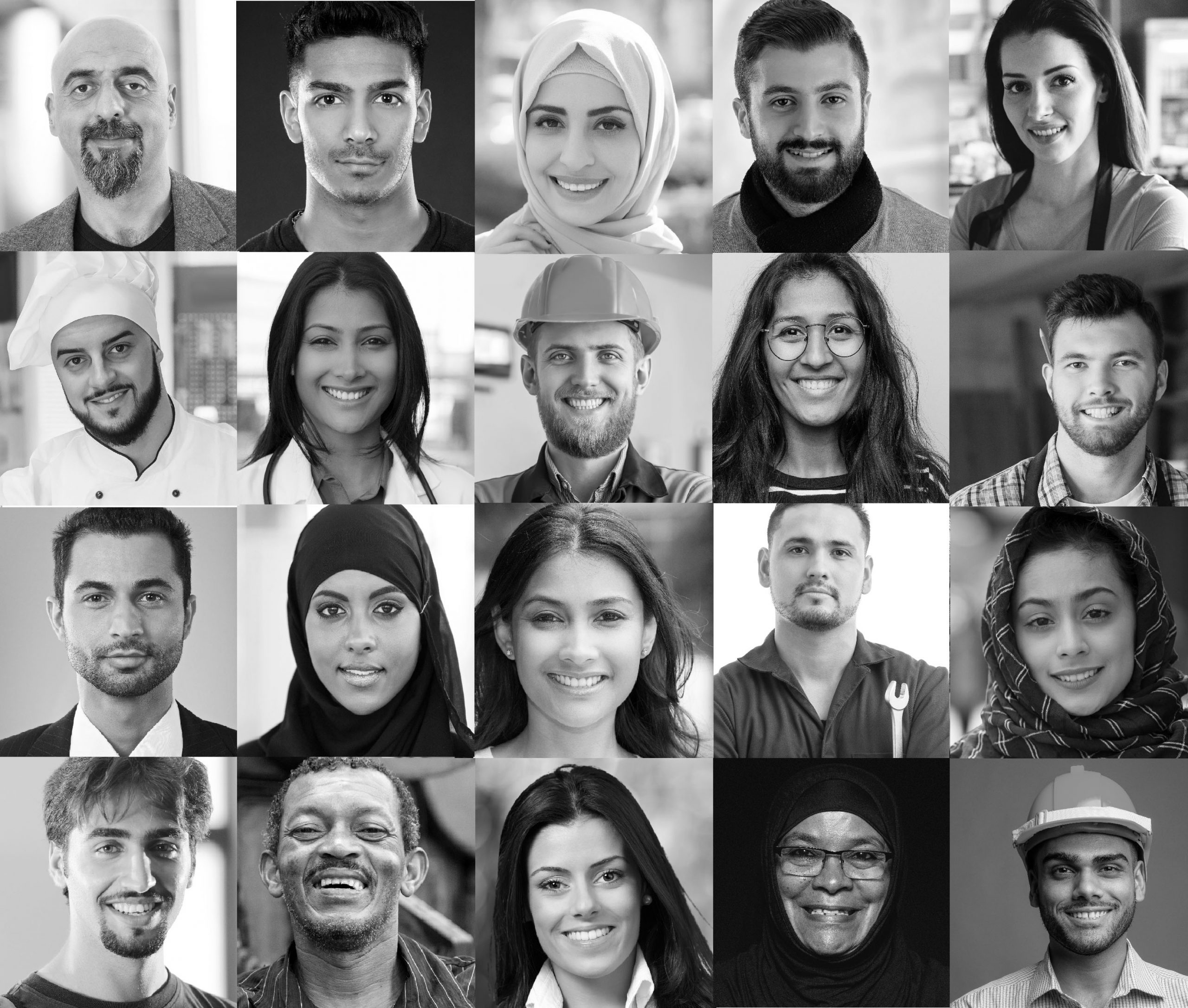
The Riyan centers work to integrate, advance and empower Israel’s Arab sector in the areas of employment, higher education and vocational training. The centers offer the widest range of services currently available to the Arab sector, including: individual mentoring, career counseling, vocational training, workshops for developing employability skills, referrals to support agencies, encouragement of entrepreneurship, information about how to exercise rights, and referrals to positions and prospective employers.
The centers, which were established by the Ministry of Labor, Social Affairs and Social Services and are run by Al Fanar (in the north) and by Be-Atzmi (in the Triangle Region, Wadi Ara and the south), are located in dozens of communities spread across the country.
Program director: Nariman Sleiman: nariman_sle@be-atzmi.org.il
Ta'asuKav
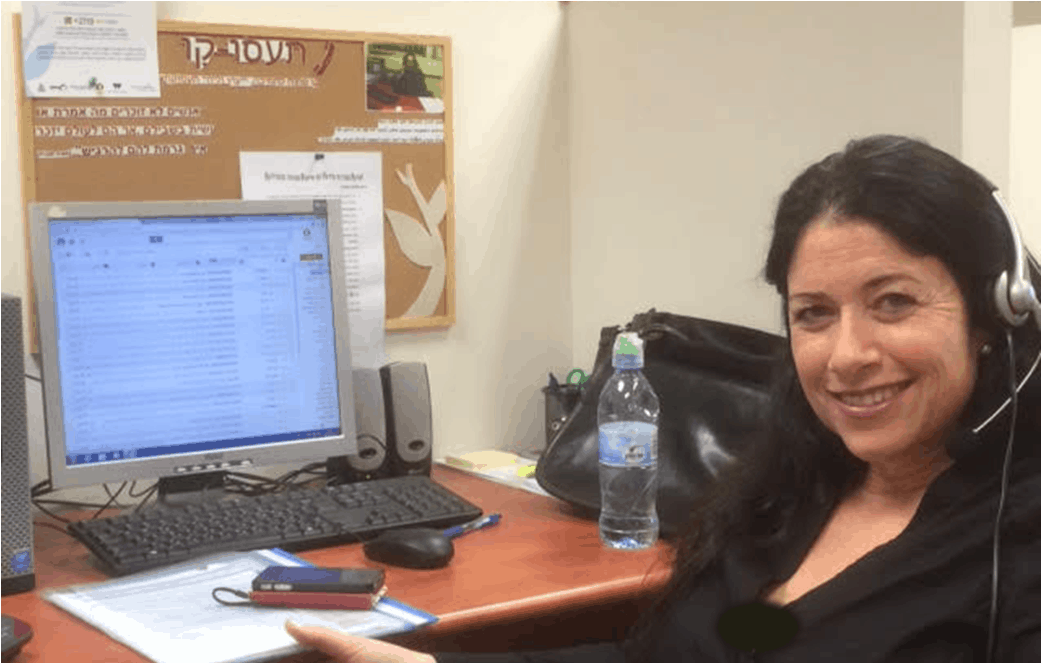
Ta’asuKav is a nationwide helpline that provides advice, support and guidance over the phone to unemployed persons and people facing employment-related hardship. The calls are answered by volunteer employment coaches – who received special and extensive training.
The volunteers offer the callers emotional support and assist them in defining a career path and in examining their vocational aspirations, skills and employment barriers. They also help them prepare for interviews and write resumes, and refer them to relevant services. The process typically lasts a few weeks, based on need, and the coaches strictly respect the callers’ anonymity if asked to do so. The helpline operates thanks to support from the corporate and philanthropy sector.
Ta’asuKav is a helpline, which is made available throughout the job search process, and is not a placement service.
Helpline Director:Yehudit Glick
tkav@be-atzmi.org.ill
